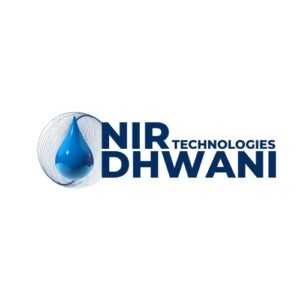Underwater Domain Awareness (UDA) Framework for
Effective Blue Frontiers in the Indian Ocean Region (IOR)

About Event
The Indian Ocean Region (IOR) has attained significant strategic relevance in the 21st
century for multiple reasons than one. More and more global powers, want to maintain
their strategic presence in the region and claim their stake in the power play. Extraregional powers are increasingly deploying their maritime forces and research vessels
in the region to ensure their political and military dominance. Such efforts are not
conducive for the long term wellbeing of the nations within.
The traditional Maritime Domain Awareness (MDA), got significant push, post the 9/11
incident and the American establishment made it a high priority strategic objective. In
India, post the 26/11 incident, similar efforts were initiated and the MDA infrastructure
got prioritized in the IOR. However, in both the cases, being an event driven initiative,
it remained a security centric formulation with minimal penetration with the other
stakeholders. The MDA that we see today is largely limited to the sea surface and the
underwater component is still a work in progress, even in the US led effort. The
Underwater Domain Awareness (UDA) will require, very specialized focus and high
end Science & Technology (S&T) support.
The UDA in the tropical littoral waters of the IOR, has some very unique challenges
and opportunities. The sub-optimal sonar performance is a major impediment to any
UDA initiative. The socio-economic status of the nations in the region is a major
limitation for maritime governance and also prioritizing S&T for enhancing sonar
performance with indigenous efforts is a cause of concern. The extra-regional powers
continue to push their hardware with least performance in the tropical littoral waters.
“Digital Oceans” today can have a far greater relevance for effective maritime
governance, particularly in the tropical littoral waters of the IOR. It will encourage Safe,
Secure, Sustainable Growth for all in the region.
The UDA framework proposed by the Maritime Research Centre (MRC), encourages
pooling of resources and synergizing of efforts across the stakeholders, namely
the maritime security, blue economy, environment & disaster management and the
science & technology providers. This will minimize the ongoing fragmented approach
across stakeholders within the nations and also among the nations in the region.
Enhanced S&T, will require far more indigenous R&D efforts with field experimental
validation to overcome the local site specific challenges. Policy & technology
intervention along with acoustic capacity and capability building becomes the most
critical component of effective maritime governance. This being the Decade of the
Ocean Sciences for Sustainable Development, declared by the United Nations, it is
important to build a program that can bring the stakeholders and nations in the IOR
together. This will ensure effective maritime governance, in line with the Sustainable
Development Goals (SDG) requirement, that directly impact the three pillars of
people, economy and nature. Specialized initiatives are required, driven by the UDA
framework to ensure peace & prosperity, given the abundance of undersea resources
in the tropical waters.
The Maritime Research Center (MRC), Pune is a not-for-profit, Section 8 company registered with the Registrar of Companies (RoC), as Foundation for Underwater Domain Awareness.
Contact Information
Address: Maritime Research Center, Koregaon Bhima, Pune, Maharashtra – 412216
Email: director@maritimeresearchcenter.com
Social Connect
- Youtube
Map
UDA*
The conventional approach of each of the stakeholders pursuing their own UDA* efforts has serious limitations given the highly resource intensive field experimental research initiative required for a long period. Click here for more


